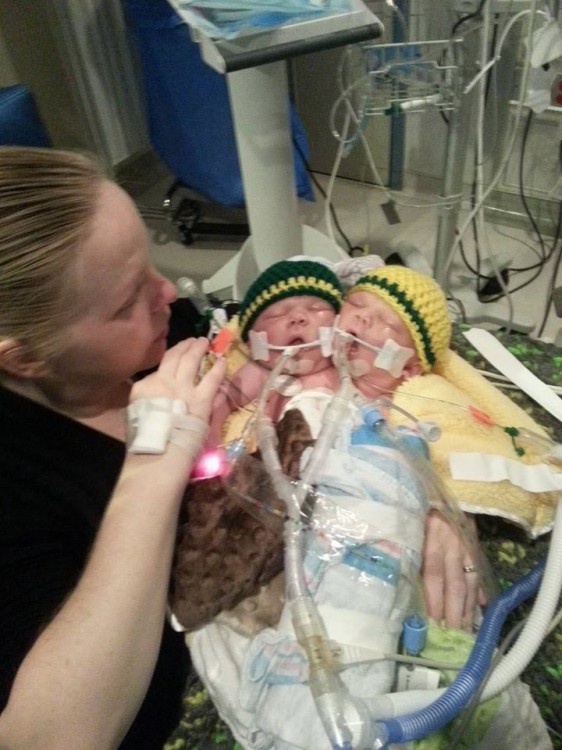
For Michael and Robin Hamby, the welcoming of their twin boys—Asa and
Eli—is a joy like no other. But it is also a time in which they
recognize the need to shift their focus, to place all their attention on
recuperating and giving their boys the best chance at survival.
Asa and Eli were born conjoined. Rare, in and of itself, conjoined twins
only occur in about one in every 200,000 births. But Eli and Asa are
even more special because male conjoined twins are less common than
female conjoined twins (about 70 percent are girls).
Asa and Eli were born conjoined. Rare, in and of itself, conjoined
twins only occur in about one in every 200,000 births. But Eli and Asa
are even more special because male conjoined twins are less common than
female conjoined twins (about 70 percent are girls).
Unfortunately, these are not the only odds that these two boys have to deal with.
Born weighing 9lbs 10.4 oz, the boys are joined at the torso, arms,
and legs and they cannot be separated because they share a heart and a
circulatory system.
Their likelihood of survival is grim; of all
conjoined twins, about 40 to 60 percent are stillborn. Only about 35
percent live a day. And for those that share a heart, the mortality rate
is exceptionally high.
But the family is holding onto hope, and the boys seem to be doing okay, despite the odds they’re facing.

No comments:
Post a Comment